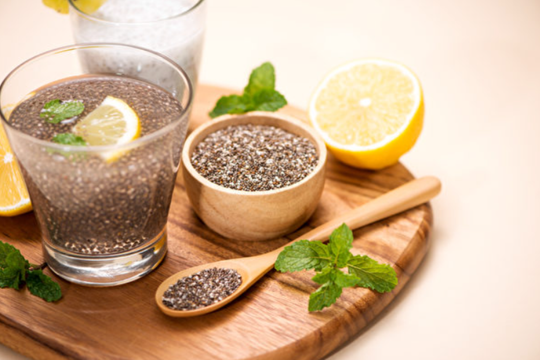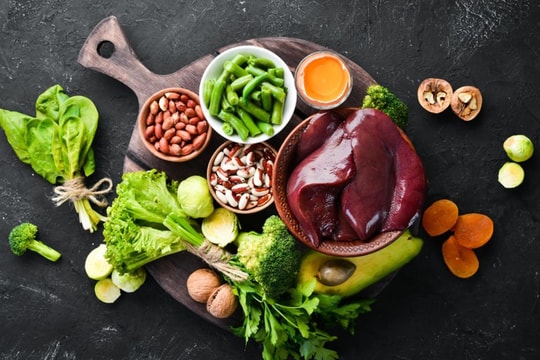Who should not eat okra?
Okra, its pods and seeds contain many antioxidant compounds, which can help reduce the risk of cancer, cardiovascular disease... However, eating too much can have negative effects on some people such as people who have had kidney stones...
Unique Health Benefits of Okra for Health
According toMedical News TodayOkra is a rich source of minerals, vitamins, antioxidants, and fiber. Okra has a mild flavor and unique texture, with a peach-like, fuzzy exterior. Inside the fruit are small, edible seeds.
100g of okra provides 33 calories, 1.9g of protein, 0.2g of fat, 7.5g of carbohydrate, 3.2g of fiber, 31.3mg of vitamin K, 299mg of potassium, 7mg of sodium, 23mg of vitamin C, 0.2mg of thiamin, 57mg of magnesium, 82mg of calcium... Okra also provides vitamin B6, A, folate and some iron, niacin, phosphorus, and copper.
Okra, its pods, and seeds contain many antioxidant compounds, including phenolic compounds and flavonoid derivatives, such as catechins and quercetin. Scientists believe these compounds may help reduce the risk of cancer. They may also have antibacterial and anti-inflammatory properties.

Okra offers many unique health benefits. Photo: Shutterstock
A diet rich in fruits and vegetables can reduce the risk of a range of health conditions, including obesity, diabetes and heart disease.
The mucilage in okra can also help remove toxins from the body. The nutrients in okra can help prevent a number of health problems such as cancer, diabetes, heart disease, osteoporosis, etc.
According to doctors at Vinmec International General Hospital, okra brings many benefits to the body:
-Anemia: Regularly drinking okra juice can also prevent the risk of anemia because okra also has a high content of iron, potassium, zinc... which helps supplement nutrients to regenerate blood.
-Digestive system: Okra is very good for the digestive system, can help improve digestive function.
In fact, the sticky mucus in okra is made up of polysaccharides such as collagen and mucopolysaccharides that help improve the nutrition of beneficial microorganisms in the intestines. The main effect is laxative, supporting digestive disorders.
Okra also contains a lot of fiber and mucus that can regulate the absorption of the small intestine, helping to regulate blood sugar levels. This mucus is also a growth environment for intestinal bacteria, which has the effect of lubricating the intestines.
-Constipation: The amount of fiber in okra can absorb water to form large stools, control blood cholesterol levels to help prevent constipation. Okra can also act as a laxative, with fiber binding to toxins to help reduce intestinal motility.
-Osteoporosis: The mucus found in okra along with vitamin K and folate can prevent calcium loss, prevent osteoporosis, and help bones become stronger.
-Skin care: Pectin in okra has the effect of increasing skin elasticity. Eating okra regularly can improve skin health, the antioxidants in it can help purify the blood, remove impurities and help fight acne.
In addition to eating, you can also crush okra and use it as a face mask to make your skin brighter and smoother.
-Losing weight: Okra is extremely rich in fiber, including both soluble and insoluble fiber. This fiber is beneficial for weight loss. In addition, okra is also low in calories, making it an ideal food for weight control.
Risks and side effects of eating okra
However, eating too much okra can have adverse effects on some people.
-Having digestive problems: Okra contains fructans, a type of carbohydrate. Fructans can cause diarrhea, gas, cramps, and bloating in people with existing bowel problems.
Similarly, according toMedicine.net, fructans, a type of carbohydrate found in okra, may increase bowel problems in people with irritable bowel syndrome.
-Kidney stones: Okra is high in oxalates. The most common type of kidney stone is calcium oxalate. Foods high in oxalates, such as okra and spinach, may increase the risk of kidney stones in people who have had kidney stones.
-Joint pain: Okra contains solanine, a toxic compound that can cause joint pain, arthritis, and chronic inflammation in some people. Potatoes, tomatoes, eggplants, blueberries, and artichokes also contain solanine.
-Blood clotting: Vitamin K helps blood clot, and the high vitamin K content in okra may affect people who take blood thinners. Blood thinners help prevent blood clots from forming (which can lead to strokes or heart attacks).
People who take blood-thinning medications or are at risk of developing blood clots should maintain a regular diet rich in vitamin K-rich foods.
When preparing okra, you should not overcook it to avoid losing the mucus and preserving the nutrients in it. It is also a cold vegetable, so people with poor health or stomach aches should not eat too much, as it will have the opposite effect./.





